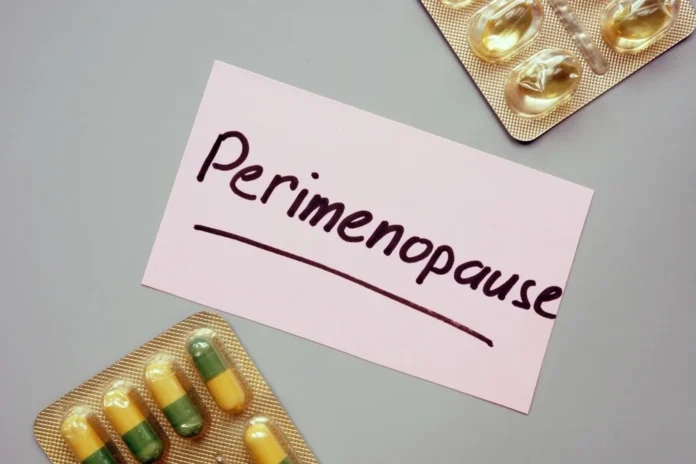Understanding Perimenopause
Perimenopause refers to the transitional period before menopause when a woman’s body begins to undergo changes in preparation for the end of her reproductive years. It typically starts in a woman’s 40s but can begin as early as the 30s, or even before age 40, which is known as early perimenopause.
Causes of Early Perimenopause
- Genetics: Family history can play a significant role. If a woman’s mother or sister experienced early perimenopause, she might too.
- Lifestyle Factors: Smoking, high-stress levels, and poor diet can contribute to an earlier onset.
- Medical Conditions: Autoimmune diseases, thyroid disorders, and chronic fatigue syndrome can impact ovarian function.
- Medical Treatments: Chemotherapy, radiation therapy, or surgeries affecting the ovaries can trigger early perimenopause.
- Premature Ovarian Insufficiency (POI): A condition where the ovaries stop functioning normally before age 40.
Symptoms of Perimenopause
- Irregular periods
- Hot flashes and night sweats
- Sleep disturbances
- Mood swings and irritability
- Vaginal dryness
- Decreased libido
- Weight gain
- Thinning hair
- Loss of breast fullness
Ways to Manage Perimenopause
Lifestyle Adjustments
- Healthy Diet: Emphasize fruits, vegetables, whole grains, and lean proteins. Foods rich in calcium and vitamin D support bone health.
- Regular Exercise: Helps manage weight, reduce stress, and improve mood and sleep quality.
- Stress Management: Techniques such as yoga, meditation, and deep-breathing exercises can help reduce stress levels.
- Avoid Triggers: Identify and avoid triggers for hot flashes, such as spicy foods, caffeine, and alcohol.
Medical Interventions
- Hormone Therapy (HT): Can be effective for managing severe symptoms. It involves taking estrogen and sometimes progestin to balance hormone levels.
- Non-Hormonal Medications: Antidepressants, blood pressure medications, and other non-hormonal treatments can help manage symptoms like hot flashes and mood swings.
- Vaginal Estrogen: Applied directly to the vaginal area to alleviate dryness and discomfort.
Alternative Therapies
- Herbal Supplements: Black cohosh, evening primrose oil, and phytoestrogens (found in soy) are often used to relieve symptoms. Consult with a healthcare provider before starting any supplements.
- Acupuncture: Some studies suggest acupuncture may help reduce hot flashes and improve mood.
Consulting with Experts
- Gynecologists: Specialized in women’s health, they can provide comprehensive care and treatment options.
- Endocrinologists: Focus on hormonal health and can help manage hormonal imbalances.
- Nutritionists: Provide guidance on diet and supplements that support overall health during perimenopause.
- Therapists/Counselors: Help manage emotional and psychological aspects of perimenopause.
Conclusion
Early perimenopause can be challenging, but understanding its causes and symptoms is the first step toward effective management. By incorporating lifestyle changes, exploring medical treatments, and seeking expert advice, women can navigate this transitional phase with greater ease and well-being.



